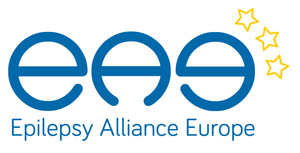Improving the Life of People with Epilepsy:
A European Perspective
A European study on the burden and care of epilepsy
Funded by the European Commission Directorate-General for Health and Food Safety – Contract No. 2014/1/1995648
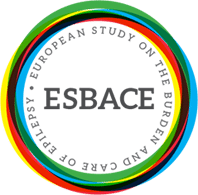
ESBACE Background
In 2013, Epilepsy Alliance Europe held a workshop in the European Parliament in Brussels to highlight the need for a European-wide study on prevalence rates of epilepsy, using appropriate and standarised methodology.
It was reported that 66 studies on the prevalence of epilepsy in European countries had been published in English, which presented conflicting data, mostly likely due to methodological differences and shortcomings. Reliable cost estimates depended, among other things, on accurate data on the prevalence rates of epilepsy. The definition of epilepsy also varies across studies and the methods to ascertain epilepsy cases are also highly variable.
A sub-task force, created by Epilepsy Alliance Europe, pointed up that the prevalence and cost of epilepsy in Europe was a field with major knowledge gaps, which should be addressed urgently. Obtaining reliable information on the issue is essential for the rational allocation of resources to ensure adequate and cost-effective epilepsy care across Europe.
In response to a Call for proposals for a prevalence research project, issued in June 2014 by the European Commission Directorate-General for Health and Food Safety, the ESBACE project was successfully submitted.
The general objective of the pan-European research project, ESBACE (European Study on the Burden and Care of Epilepsy), is to facilitate the development of high-quality epilepsy care at all stages of the disease, equitable across EU countries.
About The ESBACE Project
The general objective of the pan-European research project, ESBACE (European Study on the Burden and Care of Epilepsy), is to facilitate the development of high-quality epilepsy care at all stages of the disease, equitable across EU countries. ESBACE will provide data on the burden of epilepsy and on current provision and organization of care in selected EU member states.
ESBACE has established a consortium of 10 centres as associate partners, with a further 9 collaborating centres to drive this project.
The specific objectives of ESBACE are as follows:
- Provide data on the prevalence of epilepsy in European countries
- Provide information on the cost of epilepsy in European countries
- Provide information on the stigma and quality of life of people with epilepsy
- Provide information on the coordination of services for patients with seizures, through an audit that ascertains patients attending emergency services
- Provide an update on provision and organization of epilepsy care in Europe
- Disseminate to health care providers and decision makers information on the burden of epilepsy in Europe, and of deficiencies as well as examples of good quality care
In accordance with the tasks set in the by the Commission (Commission decision 4319), ESBACE’s first objective is to define appropriate standard methods for a population-based study of prevalence, cost and stigma of epilepsy, and also to survey organization and quality of epilepsy care.
As a second step ESBACE will apply the methods to assess prevalence, cost, and stigma of epilepsy in four member states, selected to represent different types of regions in Europe. To assess epilepsy care, ESBACE will study patients attending emergency services and assess their prior, acute and onward care pathways in these same countries.
Examples of good care will be identified. The project will also undertake a survey of the current epilepsy care, resources and organisation, across all member states. The data will inform appropriate resource allocations aiming at equity in access to good quality epilepsy care across the EU.
ESBACE Methods and Means
Ireland, Denmark, Austria, and Romania have been selected as representing different regions of the EU. In all, a population-based study to identify patients with epilepsy will be carried out in a representative region through systematic search at general practitioners, hospitals and other relevant institutions. Potential cases will have their epilepsy diagnosis validated by the research group, the type of epilepsy classified, and comorbidity recorded.
In Ireland and Denmark, the epilepsy prevalence will also be determined for the same study populations through utilization of National Drug Prescription and Health Care Registries.
For the cost study, the patients with epilepsy will be grouped into three categories:
- recently diagnosed;
- epilepsy in remission;
- chronic epilepsy non seizure free.

Controls matched for age and sex will be selected from the general population, and epilepsy cases and controls followed for one year to determine direct and indirect costs. These data will be compared with cost estimates based on National Health Registers in Denmark.
Stigma and Quality of Life (QoL) will be assessed in every epilepsy patient using stigma and QoL inventories translated to the local language.
We will undertake an audit of the care of patients, ascertained following attendance at emergency departments at hospitals, in the four chosen regions. This will allow assessment of care pathways for patients with new and established epilepsy, and of the coordination of care across sectors including emergency services, neurology and primary care, using the same methods as the UK National Audit of Seizure Management in Hospitals www.nash.org, which collected data from around 150 hospitals.
An updated questionnaire, that was used 15 years ago to survey provision of epilepsy care in Europe, will be distributed to all ILAE chapters of the EU member states.
Expected Outcomes from ESBACE
ESBACE will deliver new information on the prevalence of epilepsy in four EU states from different regions and with different resources and health care. This will reveal if there are significant differences in the prevalence of epilepsy.
ESBACE will provide a comparison of prevalence estimates using different methods and thereby demonstrate if the burden of epilepsy can be assessed through data generated from national health registries, which in that case could be a recommendation for sustained monitoring.
- The seizure management audit will provide information on how services are coordinated and delivered, as well as comparative information on the quality of care.
- The data on stigma can be used for educational activities and public campaigns.
- The survey of epilepsy care will identify deficiencies to be corrected as well as good examples to be followed.

Progress To Date
- Work Package 2 (Dissemination): the webpage esbace.eu is in place and a very successful Kick Off meeting was held in Luxembourg in December 2015.
- Work Package 3 (Evaluation): the first deadline for project evaluation was set for September 2016 with a first budget review in February 2017.
- Work Packages 4, 5 and 6 (Prevalence, Quality of Life, Stigma and Cost): protocols and questionnaires have been developed and are pending approval from the relevant institutions i.e. ethical committees, hospitals, data protection agencies, etc.
- Work Package 7 (Seizure management in hospitals): the protocol has been developed and is awaiting final adjustments and approval.
- Work Package 8 (Organisation of epilepsy care in Europe): an updated questionnaire for the collection of data has been developed.
Congress Session
ESBACE will be presented in a congress session, on Tuesday 13th September 2016, at the European Congress on Epileptology, taking place in Prague. The ESBACE scientific committee will also hold an update/discussion meeting in Prague.
For more info about ESBACE please visit: esbace.eu
Investigator Meeting
An investigator meeting for research personal (Work Package leads, study nurses, research fellows, etc.) involved in the collection of trial data in Work Packages 4,5,6 and 7 is planned for October 2016, to take place in Copenhagen, Denmark. More info coming soon.
Co-ordinating Partner
Aarhus University Hospital, Aarhus, Denmark

Associate ESBACE Partners

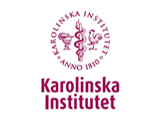


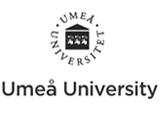
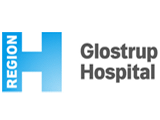


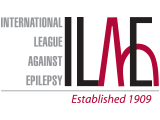
Collaborating Partners
- Beaumont Hospital, Dublin, Ireland
- James’s Hospital, Dublin, Ireland
- Cardiff University, School of Medicine, Cardiff, United Kingdom
- Danish National Institute for Local and Regional Government Research, Copenhagen, Denmark
- Dublin City University, Nursing and Human Sciences, Dublin, Ireland
- The Children Hospital “Agia Sophia”, Athens, Greece
- University Hospital of Coimbra, Coimbra, Portugal
- Dept of Neurology, Vilnius University Hospital, Vilnius, Lithuania
- AstraZeneca AB, AstraZeneca Nordic-Baltic, Södertälje, Sweden

